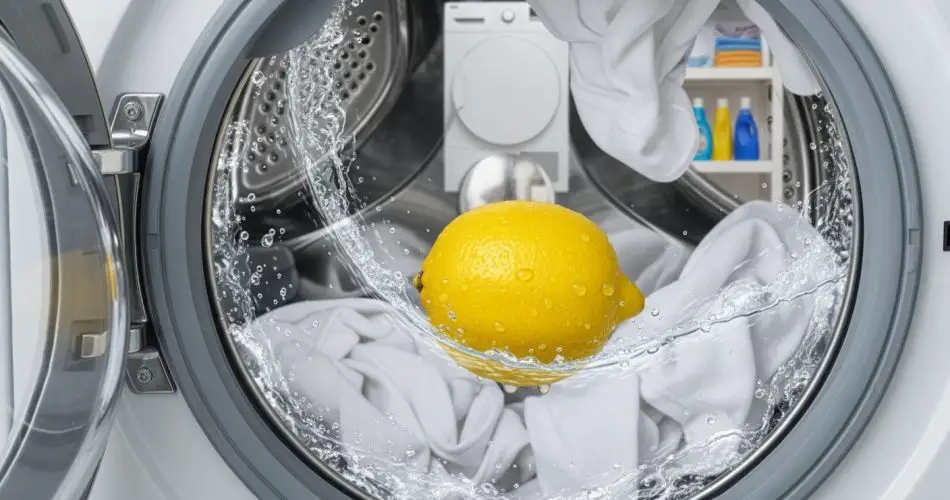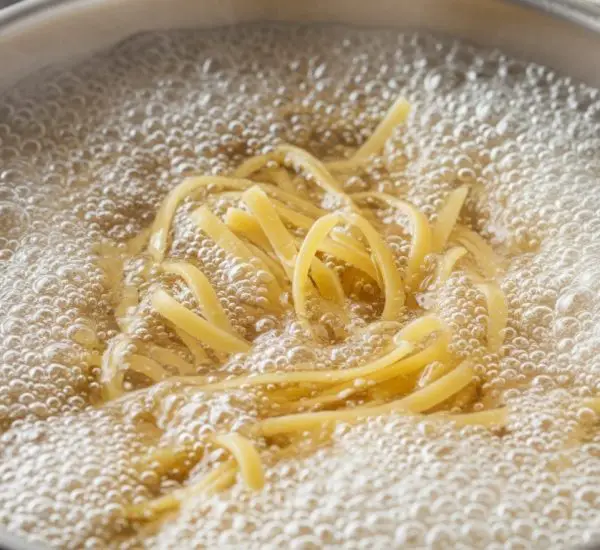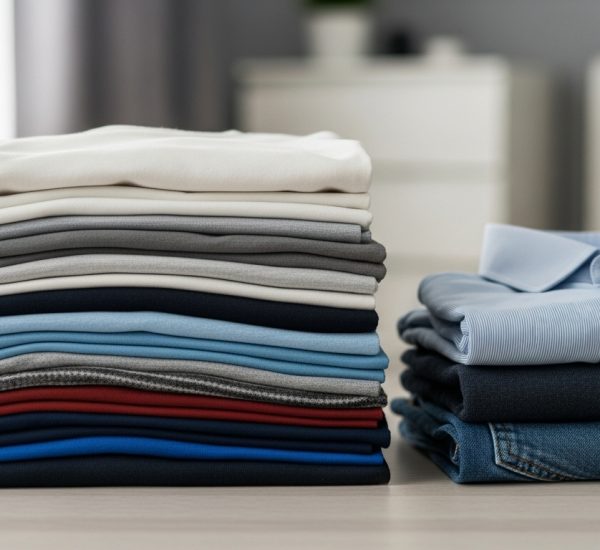If you love natural cleaning methods, you probably already know how powerful lemons can be. This humble citrus fruit isn’t just a kitchen essential — it’s also one of the most versatile natural cleaners you can use at home. With its antibacterial, whitening, and degreasing properties, lemon juice can help you maintain a clean and efficient washing machine, while keeping your laundry looking and smelling fresh.
What many people don’t realize is that lemon juice can also act as a natural descaler and deodorizer, helping to prolong the life of your washing machine and improve its performance. Using this simple trick just once a month can prevent unpleasant odors, mold buildup, and detergent residue — all while saving you money on expensive cleaning products.
Let’s explore how lemon juice works, why it’s so effective, and the best ways to use it for your washing machine and your laundry.
The Benefits of Using Lemon Juice in the Washing Machine
Lemon juice is packed with citric acid, a natural compound known for its antibacterial and descaling properties. When used correctly, it can eliminate soap scum, mineral deposits, and mildew that often accumulate in washing machines over time. These residues not only reduce the efficiency of your appliance but can also cause unpleasant smells and even damage the internal components if not cleaned regularly.
Using lemon juice is an eco-friendly alternative to chemical detergents and machine cleaners. It’s biodegradable, safe for the environment, and gentle on your appliance’s metal and plastic parts. Plus, it leaves behind a fresh, natural scent that beats the artificial perfumes of commercial cleaners.
1. Run a Monthly Cleaning Cycle with Lemon Juice
The first and most important way to use lemon juice in your washing machine is through a monthly maintenance wash. This “empty cycle” helps to clean the interior of the machine and keep it working at its best.
Here’s how to do it:
-
Mix the solution: Squeeze the juice of two fresh lemons and dilute it in one liter of warm water.
-
Pour into the detergent drawer: Empty the mixture into the main detergent compartment.
-
Run a hot or empty cycle: Start a wash cycle with no clothes inside. The heat helps the lemon juice dissolve grease, kill bacteria, and remove limescale buildup.
When the cycle is finished, you’ll notice that the drum is shiny, the odors are gone, and your machine smells fresh. Doing this once a month is enough to prevent residue buildup and ensure your washing machine continues running smoothly for years.
2. Lemon Juice Against Mold and Mildew
Mold and mildew are common problems in washing machines, especially around the rubber gasket, detergent drawer, and drum edges — all places that trap moisture. Since these areas rarely dry completely between washes, they create the perfect environment for mold spores to thrive.
Lemon juice offers an effective and natural way to tackle this problem:
-
Inspect the key areas: Check the door seal, the drum, and the detergent drawer for any signs of black spots or musty buildup.
-
Apply lemon juice: Pour some fresh lemon juice directly onto the affected areas, ensuring full coverage.
-
Let it sit: Allow it to rest for about 10–15 minutes. The citric acid will break down mold and loosen dirt.
-
Scrub gently: Use an old toothbrush or a small cleaning brush to scrub the surface.
-
Wipe clean: Finish by wiping the areas with a clean, damp cloth.
After this quick treatment, your washing machine will look and smell clean again. Regular use of lemon juice also helps prevent mold from returning, keeping your laundry area hygienic.
3. Natural Whitening Power for Clothes
Beyond cleaning the machine itself, lemon juice can also enhance the brightness of your clothes. Many people spend money on commercial stain removers and whitening detergents, but lemon juice offers a natural — and much gentler — alternative.
Here’s how to use it for laundry whitening:
-
Place your white or light-colored garments into the washing machine drum.
-
Pour a small cup (about 100 ml) of freshly squeezed and filtered lemon juice directly over the clothes.
-
Start a normal wash cycle using your regular detergent.
When the cycle finishes, you’ll be amazed at how bright and clean your clothes look. Lemon juice helps to lift stains, dissolve soap residue, and restore dull fabrics. It works especially well on sweat stains, yellowing, or dinginess that comes from repeated washing.
You can also use lemon juice for handwashing delicate garments. Simply mix lemon juice with water and let your clothes soak for about 20 minutes before rinsing — you’ll get the same refreshing and brightening effect.
4. A Natural Fabric Softener Alternative
Everyone loves the feel of soft, freshly laundered clothes, and most people rely on commercial fabric softeners to achieve it. But store-bought softeners often contain synthetic fragrances and chemicals that can irritate sensitive skin or damage fabric fibers over time. Luckily, lemon juice can serve as a safe, natural substitute.
To create your own homemade lemon softener, follow this simple recipe:
-
Mix the juice of two lemons with one liter of water.
-
Pour the mixture into the fabric softener compartment of your washing machine.
-
Run your usual washing cycle as you normally would.
The lemon’s natural acids act as an emollient, softening the fibers and leaving them feeling smooth and pleasant to the touch. It also helps neutralize any lingering detergent residue, which can make clothes stiff or itchy.
As an added bonus, your laundry will come out with a light, refreshing scent — clean and natural, not overpowering.
5. Eco-Friendly Cleaning that Saves Money
One of the biggest advantages of using lemon juice is that it’s a cost-effective and eco-friendly alternative to chemical-based cleaning products. A few lemons cost far less than specialized washing machine cleaners or softeners, and you likely already have them in your kitchen.
Moreover, using natural solutions like lemon juice reduces the number of harsh chemicals entering wastewater systems and minimizes plastic waste from detergent bottles. It’s a small, sustainable step that benefits both your home and the environment.
Final Thoughts
Lemon juice is one of the simplest yet most powerful tools you can use to keep your washing machine in top condition. From deep cleaning and mold prevention to brightening clothes and softening fabrics, this natural ingredient does it all.
By incorporating lemon juice into your laundry routine just once a month, you can extend the life of your appliance, improve the quality of your washes, and reduce your household’s environmental impact — all while enjoying that unmistakable, fresh citrus scent.
So next time you’re in the kitchen, don’t just save your lemons for cooking. Give your washing machine a refreshing boost — naturally.



